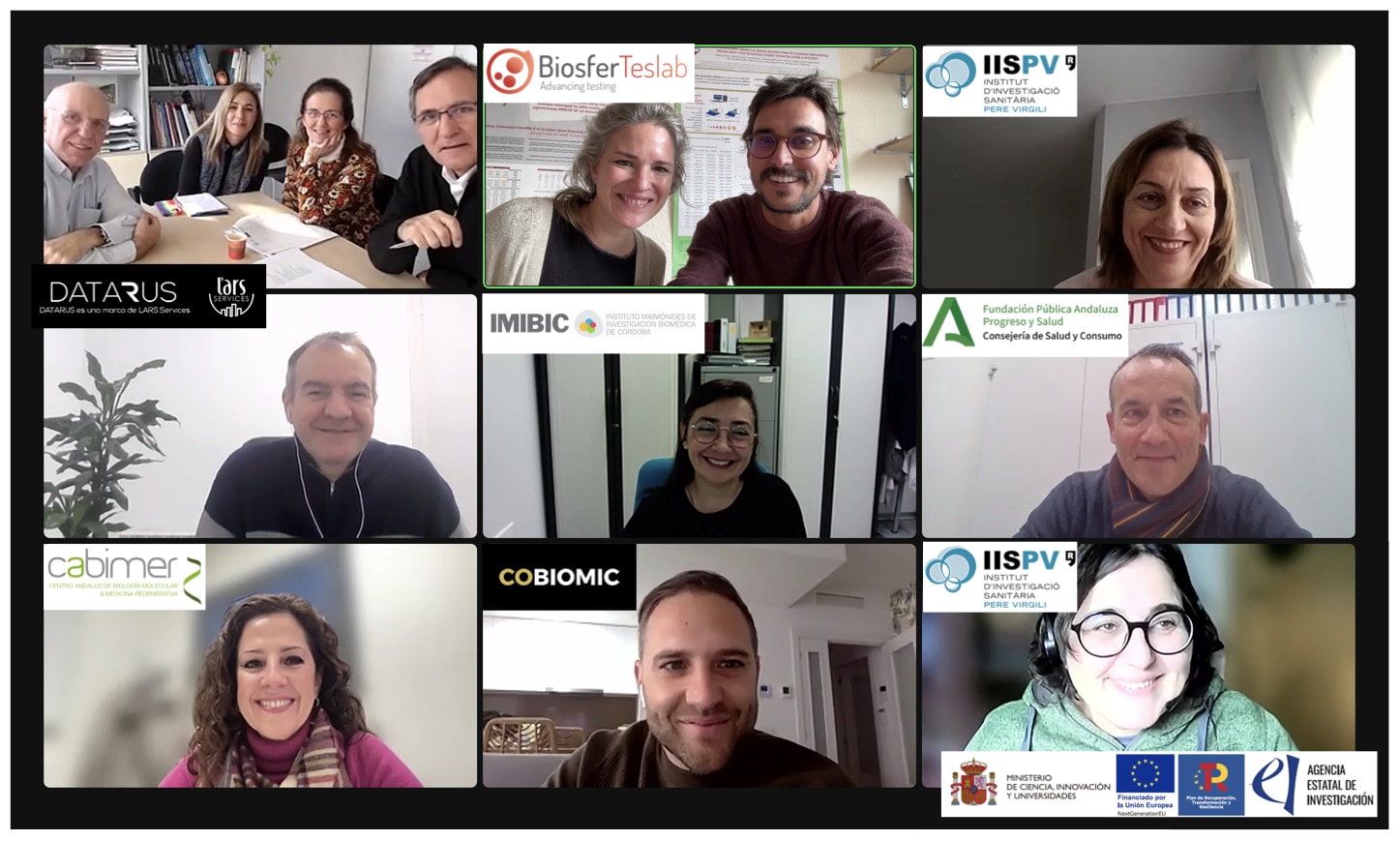In the following 3 years, Biosfer Teslab will be coordinating a consortium of companies and research centers in the framework of the project HARMONi. HARnessing the power of MultiOmics: Towards the generation of Novel & Innovative diagnostic tools to improve cardiovascular risk prediction. This project will be funded under the call for Projects in public-private collaboration 2022. With a total amount of 1.121.653,55 € (Grant CPP2022-010039 funded by MCIN/AEI/ 10.13039/501100011033 and by the “European Union NextGenerationEU/PRTR).
The main scientific objective of the project is the development of an advanced molecular test as a diagnostic tool for cardiovascular disease prediction in women. By combining state of the art omics technologies and artificial intelligence modelling. We aim to achieve this by better understanding cardiovascular risk in women in the general population at a preclinical stage. Also assess specifically how menopause and associated hormonal, and metabolic changes affect this risk.
The proposal gathers a collaborative team of research institutions and companies. The public part of the consortium will be led by Dr. Ines Pineda-Torra (technical coordinator), from the Centro Andaluz de Biología Molecular y Medicina Regenerativa (CABIMER), Dr. Maria Vinaixa, from the Institut d’Investigació Sanitària Pere Virgili (IISPV) and Dr. Chary Lopez-Pedrera from the Instituto Maimónides de Investigación Biomédica de Córdoba (IMIBIC). From the private sector, CoBiomic Bioscience (CB), a proteomics-based biomarker identification company led by Dr. Carlos Pérez Sánchez, and DATARUS, a leading software development company, led by Dr. Jaume Marrugat, will contribute with their expertise. Finally, Biosfer Teslab will be the coordinating entity under the leadership of Dr. Núria Amigó. The project has the collaboration of Quirón Prevención, through José Mauri Jurado, office manager in Sevilla. As experts in the field of occupational risk prevention and occupational medicine.
Biosfer Teslab’s specific role in the consortium will consist in establishing detailed serum metabolomic profiles of participants in the study. Analyzing their metabolomic profiles and identifying metabolic signatures associated with high cardiovascular risk in women as a function of menopausal status or autoinmunity history.
Project HARMONi ’s kick-off took place on January 11th with the participation of members from all the contributing institutions. Prioritary actions and tasks were discussed and distributed among all members according to their roles in the project. We look forward to advancing in the knowledge of molecular patterns to better understand and predict the risk of developing atherosclerotic cardiovascular disease.



